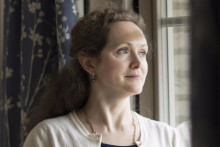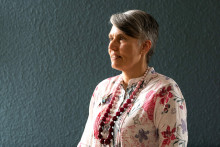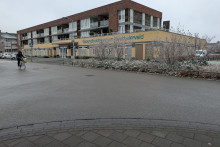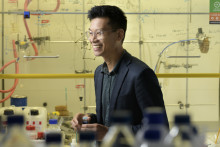What will be the main message of your lecture?
Filatova: ‘Resilience. With the changing climate, the probability of hazardous events is increasing dramatically. We can try to mitigate them, but whatever we do, we can’t prevent hazards entirely. We need to think about what happens when a disaster occurs. Yes, we need to build our cities, our infrastructure and buildings in a way so that they can withstand the shock, but we also need to be prepared for things going wrong. Every year, the World Economic Forum identifies the top five risks for humanity. This year – for the first time in fifty years – all of them are related to environmental crisis. We are facing the resilience decade. The choices we make now will define our future.’
In your research, do you try to determine these choices?
‘Yes, that is the second message I want to pass on: the importance of the social aspect in climate change policies. In my group, we collect social science data on people’s behavior and choices. We then code them into computational models of artificial societies and combine them with climate models. To create resilience, you can’t just think of a physical solution. Yes, you can build more dikes or build in cooling systems but this creates path dependence. For instance, let’s say it is too hot and everyone buys air-conditioning. The use of air-conditioning, however, leads to even warmer temperatures in the area. That is why we incorporate social behavior in our models, but that is not easy. It is hard to create computational models of our emotions and fears and other biases, all of which largely influence our decisions.’
Can the models you create be used for resilience policies?
‘These types of models have only existed for about twenty years. If it comes to empirical use, that has only existed for about five years. So is this used in practice by policy makers? No, not yet. It is a very new research field. However, we do try to understand why policies fail and why did the optimal plan not work. We can estimate what impact would certain policies have and communicate it.’
The title of your lecture is ‘Changing Climate - Changing Behavior’. Can you tell something about how our behavior changes due to the climate?
‘If it comes to households, there are several ways to adapt. We looked into energy consumption, for example. In that regard, households can install solar panels, isolate the house, switch to green energy. Or they can change their habits – set the thermostat to a lower temperature, not use air-conditioning and so on. In the Netherlands, that is what happens most often. People try to change their behavior, even though the optimal solution might be insolation of the house. That is the thing: people don’t always do what is optimal. It’s easier to change your habits than to break down walls. There is another climate adaptation that I believe will need to be considered more in the future: relocation. For example, Indonesia is already moving their capital city from sinking Jakarta to Borneo. In the US, it is already possible to relocate entire towns, although small ones. In my future work, I want to look into this and understand what is the tipping point. When do you need to switch to this policy?’

In our previous interview, you said that your main scientific goal was ‘to contribute to dealing with global environmental problems’. Is this still the case?
‘Yes, I’d say so. Although my focus has shifted a bit – from mitigation to adaptation and resilience. I want to use the existing knowledge of social sciences and bring it into climate models. Once we understand our individual decisions, we can estimate accumulated impact of all these individual decisions – on an entire region or a country. My goal is to take what we already intuitively know and put it into more quantifiable scientific knowledge.’
Being a full professor isn’t necessarily new to you, but what does it feel like to have your inaugural lecture?
‘It is a strange but pleasant feeling. It gives me a moment of reflection. Last year, five of my PhD students defended their theses. I was very proud of them. It was a big step and it felt like an entire chapter of my career has closed. Now, I have a moment to start a fresh page and understand what I want to focus on in the future. It is a moment to honor the past and to look into the future.’







